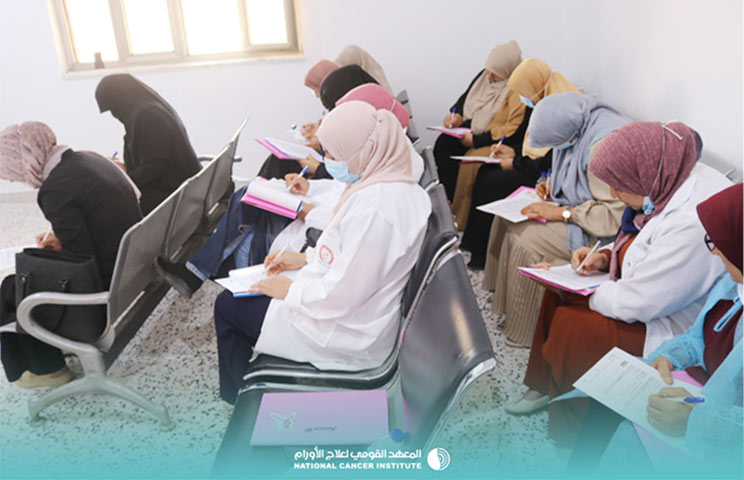More
18 August 2021
Epigenetic remodelling of enhancers in response to estrogen deprivation and re-stimulation
Scientists from the International Agency for Research on Cancer (IARC) and international partners have discovered a potential mechanism underlying the roots of endocrine resistance that commonly develops in response to anti-estrogen therapy. The study has been published in the journal Nucleic Acids Research.
Estrogen hormones are implicated in most breast cancers, and estrogen receptor alpha, the main nuclear factor that mediates estrogen signalling, orchestrates a complex molecular circuitry, which is poorly understood. In this study, the researchers combined a novel in vitro protocol adapted for studying estrogen deprivation and re-stimulation with the latest epigenomics and bioinformatics tools, which enabled a genome-wide interrogation of the epigenome and transcriptome changes.
The results showed that prolonged estrogen deprivation and re-stimulation result in time-dependent epigenetic changes (DNA methylation and histone modifications) across diverse genomic regions. Many of these changes occur within so-called enhancer regions of DNA that are known to regulate gene transcription and are associated with specific chromatin configuration. Transcriptome analysis revealed that estrogen deprivation leads to a global downregulation in gene expression, and more specifically of a gene involved in DNA demethylation (TET2). Remarkably, many of the observed changes upon estrogen deprivation were also detected in breast cancer cells that developed resistance in response to anti-estrogen therapy.
Finally, the study revealed a selective reversibility and persistence of epigenetic changes observed after estrogen deprivation and re-stimulation, suggesting a potential mechanism underlying the roots of endocrine resistance that develops in response to anti-estrogen therapy. This insight may open up new avenues of research to investigate epigenetic modifications at enhancer regions of DNA and how they contribute to the resistance of estrogen receptor-positive breast cancer to treatments.
Sklias A, Halaburkova A, Vanzan L, Fernandez Jimenez N, Cuenin C, Bouaoun L, et al.
Epigenetic remodelling of enhancers in response to estrogen deprivation and re-stimulation
Nucleic Acids Res, Published online 17 August 2021;
https://doi.org/10.1093/nar/gkab697
Other news

IARC at the International Congress on Occupational Health 2024
Researchers from the International Agency for Research on Cancer (IARC) will present during the 3...
26.04.2024
Read more

IARC Director addresses policy-makers and health workers in Brazil to mark 50 years of FOSP
Dr Elisabete Weiderpass, Director of the International Agency for Research on Cancer (IARC), will...
25.04.2024
Read more

Breast cancer early detection: training of master trainers in Libya
About 50 nurses and midwives from the main polyclinics in Misrata, Libya, have been trained on th...
25.04.2024
Read more